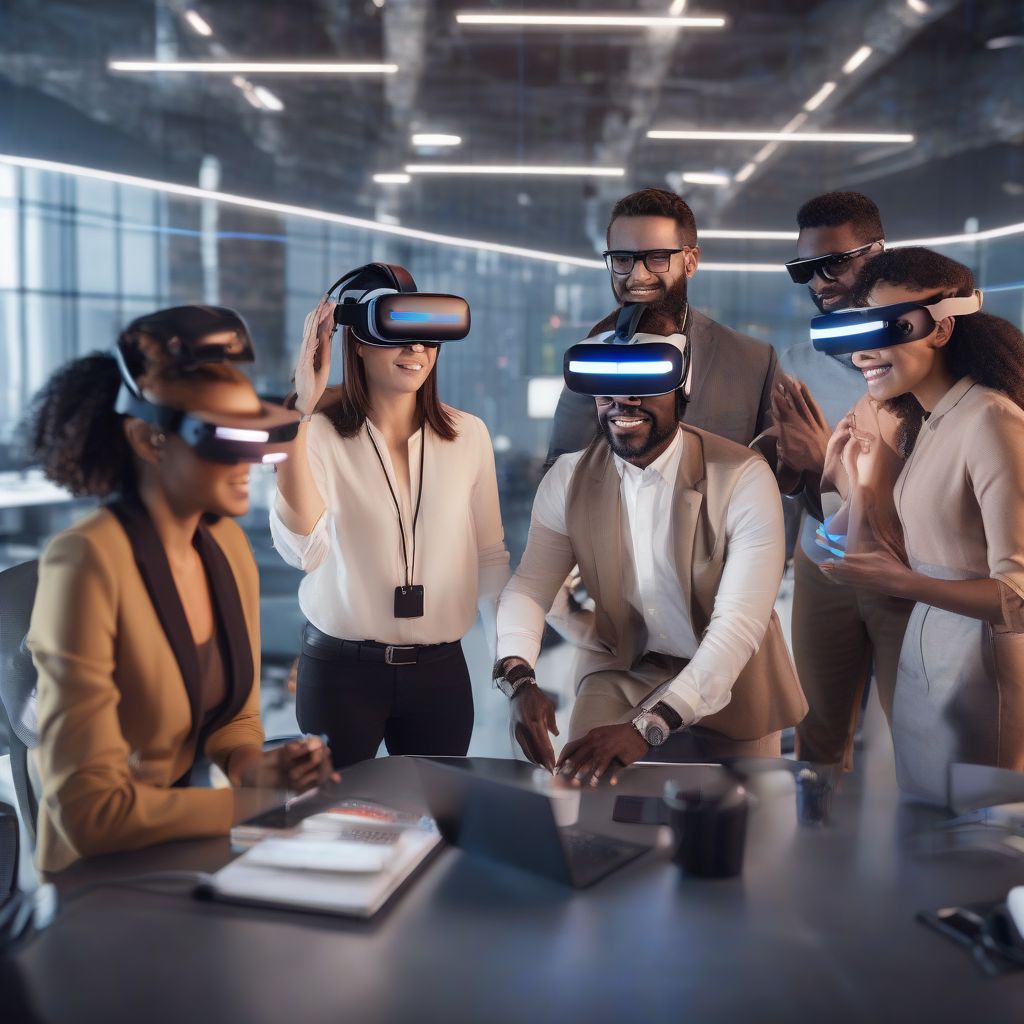Imagine stepping into a world so real, you can almost taste it. You could be climbing Mount Everest, exploring the depths of the ocean, or even traveling through time – all from the comfort of your living room. This is the captivating promise of virtual reality (VR), a technology that’s rapidly evolving from a niche interest to a mainstream phenomenon.
But what exactly are the latest trends and developments shaping the future of VR? Let’s put on our virtual reality headsets and dive right in!
The Rise of Standalone VR: Untethered and Unstoppable
Remember the days when VR headsets were essentially leashed to powerful computers? Those days are fading fast. Standalone VR headsets, packed with their own processing power and sensors, are taking center stage. This shift towards untethered experiences is democratizing VR, making it more accessible and appealing to a wider audience. No more tangled wires, no more expensive gaming rigs – just pure, immersive freedom.
What does this mean for you?
Imagine effortlessly slipping on a VR headset and instantly being transported to a virtual yoga class, a thrilling gaming tournament, or a collaborative work meeting – all without being tethered to a physical location. The possibilities are as limitless as your imagination.
Beyond Gaming: VR is Expanding its Horizons
While gaming remains a key driver of VR adoption, this immersive technology is rapidly expanding into new and exciting domains.
1. Revolutionizing Healthcare:
From virtual reality therapy for phobias and anxiety to surgical simulations that train the next generation of doctors, VR is transforming healthcare. Imagine a world where surgeons can perfect complex procedures in a risk-free virtual environment before ever stepping foot in an operating room.
2. Transforming Education:
Forget textbooks and static images – VR is poised to make learning truly immersive and engaging. Imagine students traveling through the human body to understand anatomy, exploring ancient civilizations firsthand, or even taking a virtual field trip to the Amazon rainforest. The potential for VR to revolutionize education is staggering.
3. Reimagining the Workplace:
VR is breaking down geographical barriers and fostering collaboration in unprecedented ways. Imagine architects walking clients through virtual building designs, engineers collaborating on complex projects in a shared virtual space, or even attending virtual conferences that feel as real as being there in person.
 VR in the Workplace
VR in the Workplace
[amazon bestseller=”virtual reality headset”]
The Future is Tactile: Haptic Technology and Sensory Immersion
Imagine not just seeing and hearing in virtual reality but also feeling the texture of a surface, the weight of an object, or even the wind on your skin. Haptic technology, which brings the sense of touch to VR, is rapidly evolving. From haptic gloves that provide realistic feedback to full-body suits that simulate a wider range of sensations, the future of VR promises to be a truly multi-sensory experience.
The Metaverse: Where Virtual and Real Worlds Collide
Perhaps the most exciting and potentially transformative development in VR is the rise of the metaverse. Envision a persistent, shared virtual world where you can interact with others, build communities, own digital assets, and even participate in a fully functioning virtual economy.
Why does the metaverse matter?
The metaverse has the potential to reshape our social interactions, our work lives, and even our sense of identity in ways we’re only beginning to imagine.
Conclusion: Embracing the Transformative Power of VR
The future of VR is brimming with possibilities, promising to reshape everything from how we work and learn to how we connect with each other and experience the world around us. As this technology continues to evolve, one thing remains certain: VR is no longer a futuristic fantasy – it’s a rapidly approaching reality that’s poised to redefine our world in profound and exciting ways.
What are your thoughts on the future of VR? Share your insights and join the conversation!
